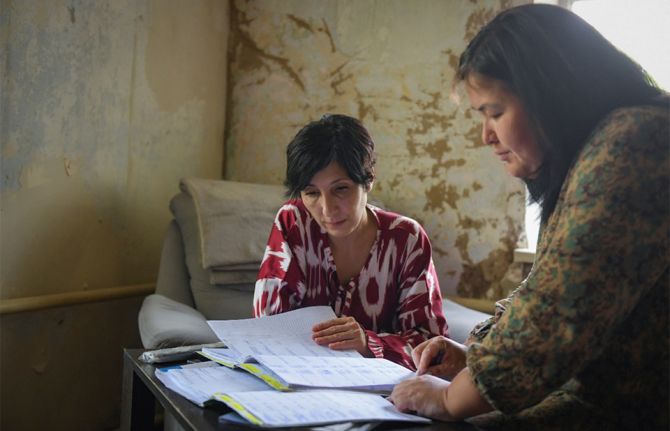
Feature Story
UNODC: humane and effective drug dependence treatment
21 July 2010
21 July 2010 21 July 2010
Credit: UNODC
Detention of HIV positive drug users is not treatment for their dependence. Drug dependence is a health disorder and punishment is not the appropriate response. This was the key message contained in a UNODC discussion paper launched at the XVIII AIDS Conference in Vienna today.
Entitled “From coercion to cohesion: Treating drug dependence through health care, not punishment”, the paper was released in conjunction with the re-launch of the Open Society Institute’s (OSI) 2010 report, “Detention as Treatment: Detention of methamphetamine users in Cambodia, Laos and Thailand”.
The UNODC report highlights problematic issues on the compulsory centres approach for people who use drugs. It argues that detention of drug users, in either prisons or compulsory centres, is on the increase. It notes that within these settings human rights violations, including forced labour and violence, often occur in contravention of internationally recommended approaches.
HIV prevalence in such detention centres is often higher than in the general population. This is exacerbated by a number of factors: drug users, especially those who inject, can be highly vulnerable to HIV infection through the use of non-sterile drug equipment. In addition, there is often an absence of HIV prevention programmes, limited heath services and lack of access to antiretroviral drug treatment.
The launch session of “From coercion to cohesion” was moderated by Christian Kroll, Global Coordinator for HIV and AIDS at UNODC. Speakers included Gilberto Gerra, Chief of the Drug Prevention and Health Branch at UNODC; Anand Grover, UN Special Rapporteur on the Right to Health; Rebecca Schleiffer, Advocacy Director, Health and Human Rights Division at Human Rights Watch and Daniel Wolfe, Director of International Harm Reduction Development at OSI.
The panellists explored and examined how public security and public health systems implement drug dependence treatment. UNODC maintains that this type of treatment should be evidence-based, promote prevention of HIV, respect the human rights of people who use drugs, and be managed by public health professionals. In order to move away from coercion and foster cohesion, the paper contends that voluntary, community-based drug dependence treatment services are more likely to attract those drug users that need treatment, and are more cost effective.
UNODC is the lead agency within UNAIDS for HIV prevention, treatment, care and support for injecting drug users and in prison settings.
Right Hand Content
Cosponsors:
United Nations Office on Drugs and Crime
Partners:
Feature stories:
UNODC project provides cross-border HIV services to Afghan injecting drug users (16 April 2010)
Call for urgent action to improve coverage of HIV services for injecting drug users (10 March 2010)
OPINION: HIV and drugs: two epidemics - one combined strategy (20 April 2009)
Opinion: Silence on harm reduction not an option (11 March 2009)
Publications:
UNAIDS Outlook Report 2010 (pdf, 6 Mb)
UNAIDS Outcome Framework 2009-2011 (pdf, 388 Kb)
From coercion to cohesion: Treating drug dependence through health care, not punishment





